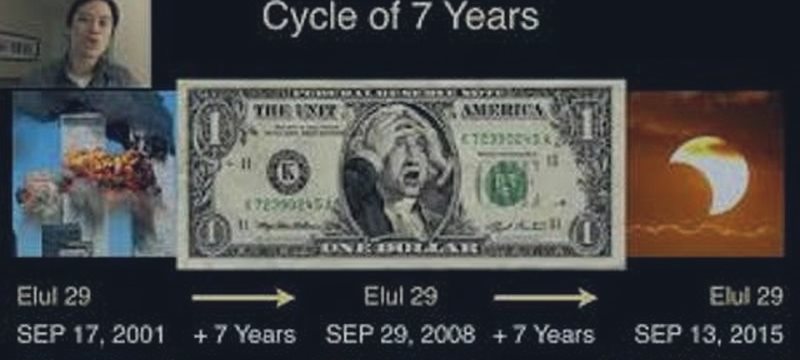A few weeks ago, I was in Greece. I was there on the day the world was supposed to end. Greece has been living beyond its means for years. It was supposed to stop on 12 July. The Greeks had voted not to accept Germany’s terms. The credit was supposed to run out on 12 July. So, I went to see what the end of the world looked like.
As it turned out, they worked out a last minute deal, proving that Greeks can kick the can further and longer than you can stay in Athens waiting for the debt bubble to blow up.
But just because you have to wait a long time for big events to occur doesn’t mean that they won’t occur. That which has to happen sooner or later will happen sometime. And the longer you wait for it, usually, the more important the event finally is.
In this book, my friend and colleague, Vern Gowdie, is warning about something that hasn’t happened yet…and which many readers think never will happen. Or they think it is such a remote threat that it is not worth worrying about.
This is not a threat that is limited to, or even principally focussed on, Australia. It is worldwide. It has been developing for more than half a century. It now hovers over everything — our economies, our governments, our retirement and health systems — like a giant battleship from space.
But almost no one wants to say anything about it!
That’s why this book is so important. Vern is pointing up. ‘Watch out,’ he’s saying. He is one of the few who dare to notice and dare to say anything.
Why? Why aren’t the authorities warning you?
The Keynesian model used by central financial planners over the last half century calls for tight policies when the economy is hot…and loose policies when it is cool. This is supposed to smooth out the boom/bust cycle.
But what we’ve gotten is not counter-cyclical policies, but just a boatload of easy money. The feds were quick to cut rates and slow to raise them. In the US, for example, rates were either flat or falling 80% of the time since 1986.
And fiscal policy — the US federal government budget — has always been stimulative. The feds are supposed to run surpluses in the fat years and deficits in the lean years. But there hasn’t been a dime of real surplus since the mid-70s. Nothing but deficits.
This was not a good model. It was only occasionally counter-cyclical. Usually, it was pro-cyclical — making the booms and busts worse, not smoothing them out.
And now, thanks largely to all that stimulus delivered to the financial sector — but not to the real economy — there’s a huge gap between what the economy actually produces in real wealth…and the wealth that people think they have as measured by stock, bond and real estate prices.
And the financial press reinforces the illusion. Look at the narrative of the crisis of 2008–2009, for example. It goes like this: the country suffered a financial crisis because of deregulation and greed. It is now recovering, thanks to the decisive action by the authorities. Ben Bernanke, Janet Yellen, and Mario Draghi are the heroes. The big banks are the villains. Dramatic tension is provided by occasional kangaroo courts that hit the bankers with big fines, and arguments over how fast the economy is recovering…and when the Fed will raise rates.
Good luck to you if you believe any of that. It is all nonsense. Nonsense on stilts. Nonsense on steroids. Nonsense with broadband.
But in the financial press and the mainstream press you will hear nothing different. Nor will political leaders give you a hint that there might be something wrong. Because if you admit that today’s sales, profits and asset prices are tricked up by excess credit, you also have to admit that the whole system is vulnerable to a disastrous correction, like 2008, but worse.
That is the sort of financial crisis that no one wants to think about…especially the people who are responsible for it. So you will hear nothing about it from the New York Times. Nor theWall Street Journal. Nor from Congress or president Obama. Nor Janet Yellen. Nor Jamie Dimon. Nor Paul Krugman. Nor the banks.
As far as I know, Vern and a small group of independent analysts — people who are not dependent on Wall Street or the government or, more importantly, on unlimited credit and ultra-low rates — are the only ones who are able to warn you. They are the only ones — apart from a few lonely academics and brave, and rather poor, hedge fund managers — with a logical and practical theory about why a depression is coming and why it could be a good thing.
But let’s not call it a depression. Depressions have gotten so much bad press. Let’s call it a ‘reboot’. You know, if you use a computer, that it tends to accumulate trash…viruses…bad commands…confusion. Over time, it slows down, or even comes to a halt.
What do you do? Increase the power? Put on more software? More apps? More big files? No, you reboot it. You start afresh.
Well, sometimes, you have to do that to an economy too. And if you don’t do it, it happens naturally…but often savagely. Vern explains why. And he also tells you what you need to do to protect yourself from it.
Bill Bonner



